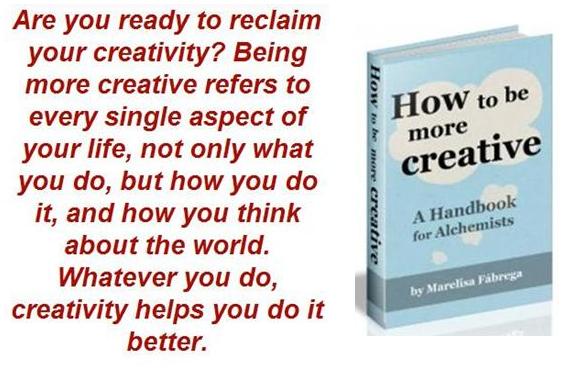
Mario Vargas Llosa is one of Latin America’s most celebrated writers.
Born in Peru in 1936, Llosa has been on the literary scene for decades. Here’s a short list of his accomplishments:
- He’s written over 30 novels, plays, and essays– his work explores politics, culture, and everyday life in Latin America. “Aunt Julia and the Scriptwriter,” “The Time of the Hero” and “Conversation in the Cathedral” are just a few of his works.
- He was a candidate in the 1990 elections for the presidency of Peru.
- He publishes regular political columns in major American and European newspapers.
- He won the Nobel Prize for Literature in 2010.

The writing tips below were curated from Llosa’s book on writing, “Letters to a Young Novelist”, which is written à la Rainer Maria Rilke’s “Letters to a Young Poet”. It consists of twelve chapters, each written as a letter to a fictitious aspiring writer. In addition, I relied on a 1990 interview of Llosa by the “The Paris Review”, as well as other speeches and interviews he’s given over the years.
Here are 18 invaluable pieces of writing advice from Mario Vargas Llosa:
The Literary Vocation
A common question asked by aspiring writers is the following: “Should I become a writer?” Llosa has the following to say about the literary vocation:
- “The defining characteristic of the literary vocation may be that those who possess it experience the exercise of their craft as its own best reward, much superior to anything they might gain from the fruits of their labors. That is one thing I am sure of amid my many uncertainties regarding the literary vocation: deep inside, a writer feels that writing is the best thing that ever happened to him, or could ever happen to him . . .” (Letters To A Young Novelist)
- “[The literary vocation is] . . . a predisposition of murky origin that causes certain men and women to dedicate their lives to an activity that one day they feel called, almost obliged, to pursue, because they sense that only in pursuing this vocation – writing stories, for example – will they feel complete, at peace with themselves, able to give the best of themselves without the nagging fear that they are wasting their lives.” (Letters To a Young Novelist)
What Should I Write About?
Aspiring writers often ask where writers find ideas for their stories and novels. Llosa’s answer is this:
- “My impression is that life—a big word, I know—inflicts themes on a writer through certain experiences that impress themselves on his consciousness or subconscious and later compel him to shake himself free by turning them into stories.” (Letters to a Young Novelist)
- “…So does it make sense to speak of authenticity in fiction, a genre in which it is most authentic to be a trickster, a swindler? It does, but in this way: the authentic novelist is the novelist who docilely obeys the rules life dictates, writing on those themes born out of experience and possessed of urgency and avoiding all others. That is what authenticity or sincerity is for the novelist: the acceptance of his own demons and the decision to serve them as well as possible.” (Letters to a Young Novelist)
- “As far as I’m concerned, I believe the subject chooses the writer . . . I never get the feeling that I’ve decided rationally, cold-bloodedly to write a story. On the contrary, certain events or people, sometimes dreams or readings, impose themselves suddenly and demand attention.” (The Paris Review)
On Style
Llosa also indicates in “Letters to a Young Novelist” that writers should find their own style. He says the following:
- “For practical advice, I’ll give you this: since you want to be a novelist and you can’t be one without coherent and essential style, set out to find a style for yourself. Read constantly, because it is impossible to acquire a rich, full sense of language without reading plenty of good literature, and try as hard as you can, not to imitate the styles of the novelists you most admire and who first taught you to love literature….Imitate them in everything else; in their dedication, in their discipline, in their habits; if you feel it is right, make their convictions yours. But try to avoid the mechanical reproduction of the patterns and rhythms of their writing, since if you don’t manage to develop a personal style that suits your subject matter, your stories will likely never achieve the power of persuasion that makes them come to life.”
Using Humor As A Literary Tool
Llosa has the following to say about using humor as a literary tool:
- “I used to be ‘allergic’ to humor because I thought, very naively, that serious literature never smiled; that humor could be very dangerous if I wanted to broach serious social, political, or cultural problems in my novels. I thought it would make my stories seem superficial and give my reader the impression that they were nothing more than light entertainment. That’s why I had renounced humor, probably under the influence of Sartre who was always very hostile to humor, at least in his writing. But one day, I discovered that in order to effect a certain experience of life in literature, humor could be a very precious tool. That happened with Pantaleon and the Special Service. From then on, I was very conscious of humor as a great treasure, a basic element of life and therefore of literature.” (The Paris Review)
About His Work Habits
Here’s what Llosa has to say about his work habits:
- “First of all, it’s a daydream, a kind of rumination about a person, a situation, something that occurs only in the mind. Then I start to take notes, summaries of narrative sequences: somebody enters the scene here, leaves there, does this or that. When I start working on the novel itself, I draw up a general outline of the plot—which I never hold to, changing it completely as I go along, but which allows me to get started. Then I start putting it together, without the slightest preoccupation with style, writing and rewriting the same scenes, making up completely contradictory situations . . .” (The Paris Review)
- “The first draft is always very difficult — a kind of fight against demoralization. I feel I’ll never get over the difficulties. What I like most is rewriting. To correct, to suppress, to add, to rebuild the story — this process is the most exciting for me.” (Source)
- “I think what I love is not the writing itself, but the rewriting, the editing, the correcting . . . I think it’s the most creative part of writing. ” (The Paris Review)
- “First, I write by hand. I always work in the morning, and in the early hours of the day, I always write by hand.” (The Paris Review)
- “I have a very rigorous work schedule. Every morning until two in the afternoon, I stay in my office.” (The Paris Review)
- “Monday through Saturday, I work on the novel in progress, and I devote Sunday mornings to journalistic work—articles and essays.” (The Paris Review)
- “If I started to wait for moments of inspiration, I would never finish a book. Inspiration for me comes from a regular effort.” (The Paris Review)
- “At the end of a day of intense work, when I find myself in a state of great inner turmoil, a movie does me a great deal of good.” (The Paris Review)
More Writing Tips From Mario Vargas Llosa
Here are three more writing tips from Llosa:
- “ . . . stories must seduce the reader not by their ideas but by their color, by the emotions they inspire, by their element of surprise, and by all the suspense and mystery they’re capable of generating.” (The Paris Review)
- “A good novel is a conjunction of many factors, the main of which is without a doubt, hard work.” (Source)
- “Faulkner was the first novelist I read with pen and paper in hand, because his technique stunned me. He was the first novelist whose work I consciously tried to reconstruct by attempting to trace, for example, the organization of time, the intersection of time and place, the breaks in the narrative, and that ability he has of telling a story from different points of view in order to create a certain ambiguity, to give it added depth.” (The Paris Review)
Conclusion
In the very last line of “Letters to A Young Novelist”, Llosa says the following:
“My dear friend: what I am trying to say is that you should forget everything you’ve read in my letters about the structure of the novel, and just sit down and write.”




Related Posts:
- 57 Tips For Writers, From Writers
- 119 Journal Prompts For Your Journal Jar
- 18 Things to Do With Moleskine, or Any Notebook
- 24 More Fabulous Tips For Writers, From Writers
Did you enjoy this article? Subscribe to “Daring to Live Fully” by RSS or by email, and get free updates.





 Marelisa Fabrega is a lawyer and entrepreneur. She holds a Bachelor of Science in Business Administration from Georgetown University in Washington, D.C., as well as a Juris Doctor from the Georgetown University Law Center. You can learn more about her
Marelisa Fabrega is a lawyer and entrepreneur. She holds a Bachelor of Science in Business Administration from Georgetown University in Washington, D.C., as well as a Juris Doctor from the Georgetown University Law Center. You can learn more about her 





